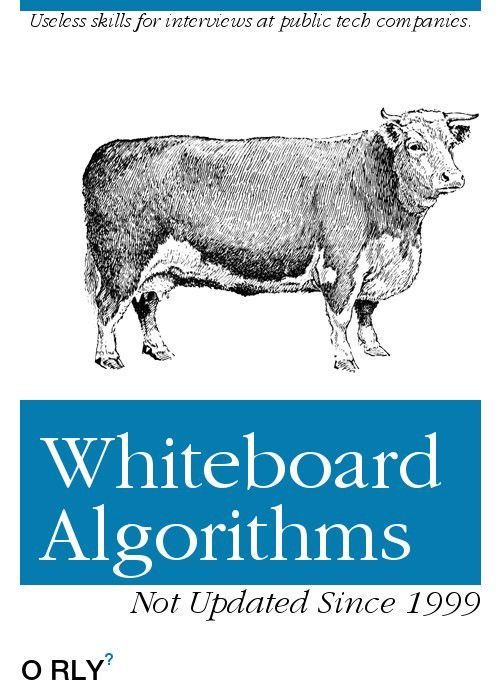
In the vast, interconnected world of Techtopia, a place where innovation pulses through the air like electricity and the quest for talent is as competitive as the markets themselves, there emerged a contentious tradition: "Whiteboard Algorithms." This practice, entrenched in the hiring rituals of many public tech companies, became a rite of passage for developers seeking to join the ranks of the digital elite. Yet, it was often criticized, seen by many as a test of "Useless skills for interviews at public tech companies."
At the center of our tale is Morgan, a developer of considerable prowess, whose journey through the labyrinth of tech interviews brought them face-to-face with the ubiquitous whiteboard. Morgan, like many before them, found the whiteboard algorithm challenges to be a peculiar crucible—a test that seemed more a measure of one's ability to perform under pressure and recall esoteric details than of one's capacity to contribute meaningfully to a team or project.
Armed with dry-erase markers and a mind brimming with algorithms, Morgan stood before the whiteboard, tasked with solving complex problems on the spot. The challenges ranged from the classic—sorting algorithms and data structure manipulations—to the obscure, puzzles that seemed more at home in academic journals than in the day-to-day work of a software developer.
As Morgan navigated the trials of the whiteboard, they couldn't help but ponder the relevance of these exercises. "Useless skills for interviews at public tech companies," they mused, reflecting on the hours spent mastering algorithms that, while intellectually stimulating, bore little resemblance to the work they aspired to do. The disconnect between the skills tested in these interviews and the realities of the job market became a recurring theme in Morgan's journey, a source of frustration and contemplation.
Yet, Morgan's tale is not one of disillusionment but of resilience and adaptation. Recognizing the whiteboard as a fixture of the tech hiring landscape, they sought not just to overcome its challenges but to understand its place within the broader context of Techtopia's talent wars. Morgan came to see the whiteboard algorithm interviews as a crucible, not of skill, but of adaptability and perseverance—a way for companies to gauge a candidate's problem-solving process, their ability to think critically and communicate under pressure.
Morgan's journey through the realm of whiteboard algorithms evolved into a campaign for change. Advocating for a more holistic approach to technical interviews, they championed the inclusion of real-world coding challenges, collaborative problem-solving sessions, and discussions that allowed candidates to showcase their creativity, teamwork, and the practical application of their knowledge.
"Whiteboard Algorithms: Useless skills for interviews at public tech companies" thus transformed from a critique to a call to action, inspiring a dialogue within Techtopia about the nature of hiring and the qualities that truly define a valuable contributor. Morgan's story served as a beacon to both interviewers and candidates, encouraging a shift towards hiring practices that better reflect the complexities and collaborative nature of modern software development.
And so, in the annals of Techtopia's history, the saga of whiteboard algorithms stands as a testament to the evolving landscape of technical hiring, a reminder that the true measure of a developer's worth lies not in their ability to solve puzzles on a whiteboard, but in their capacity to innovate, collaborate, and adapt in the ever-changing world of technology.